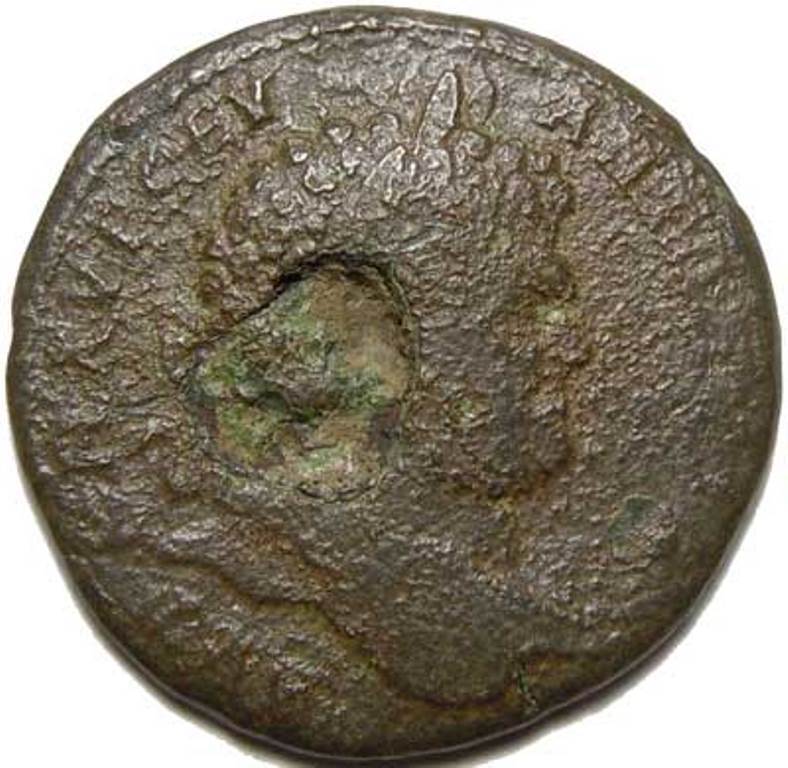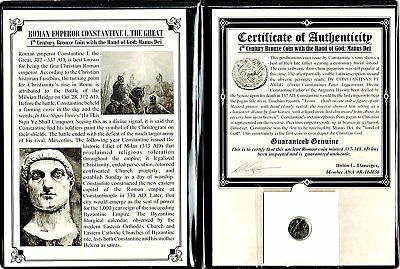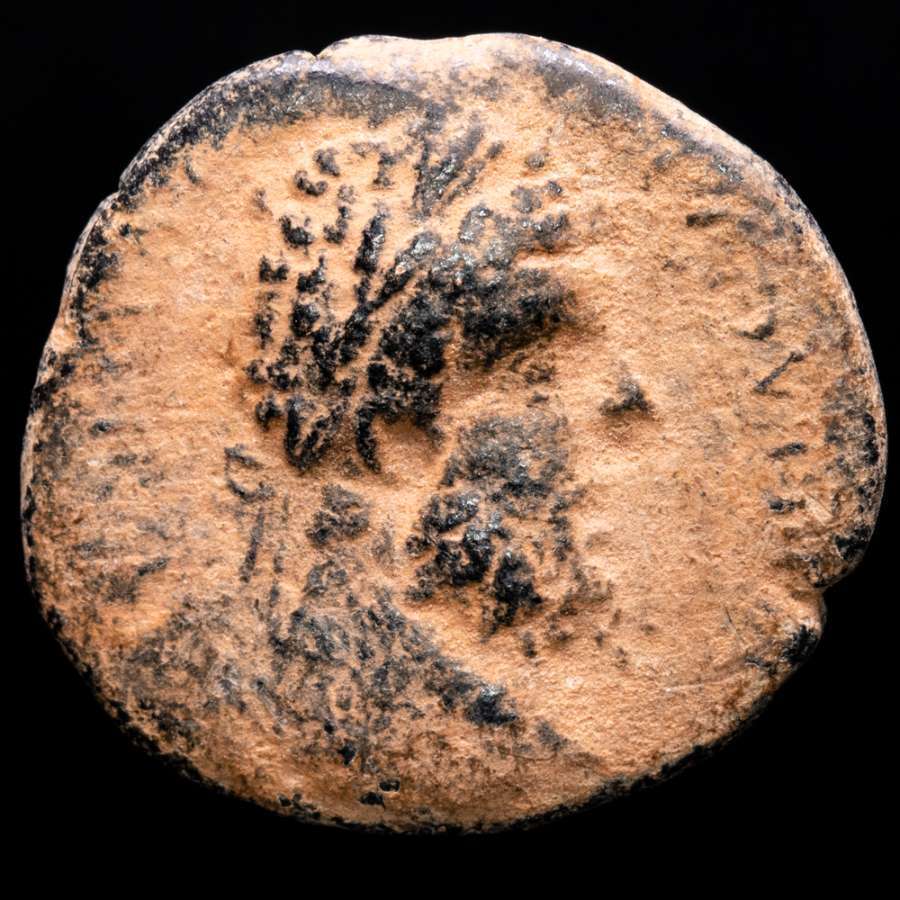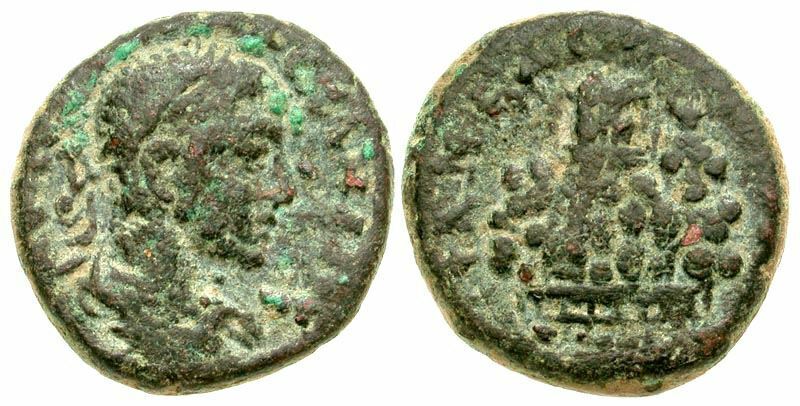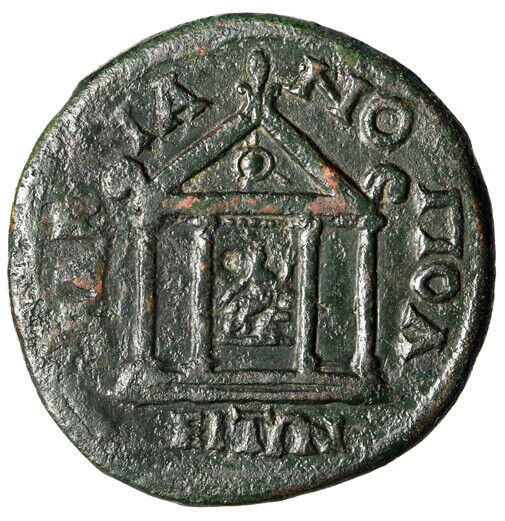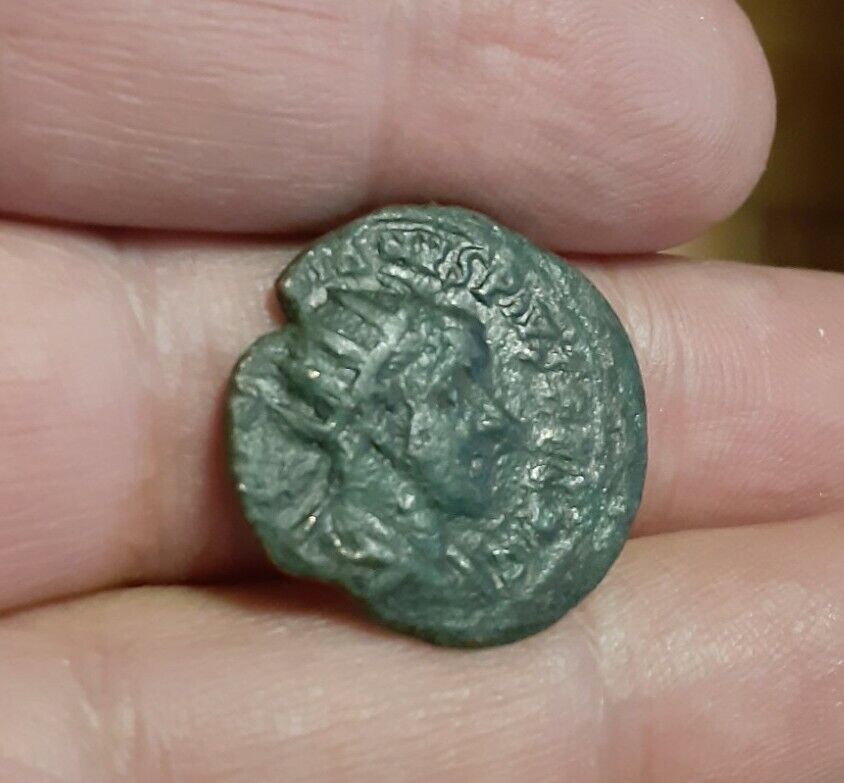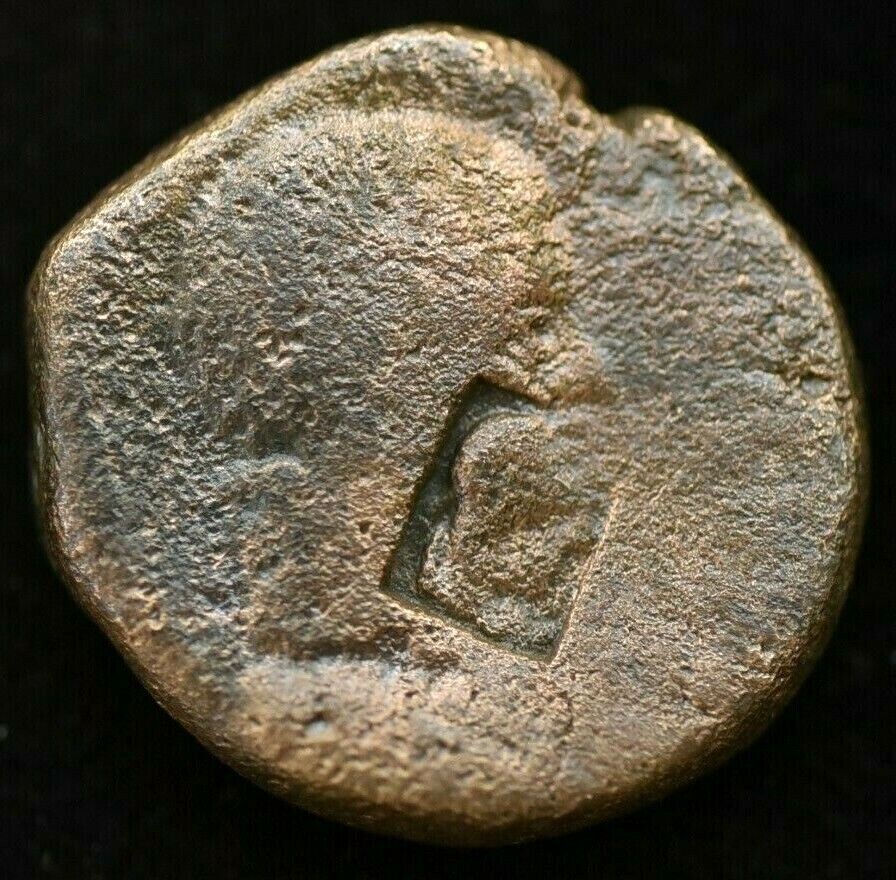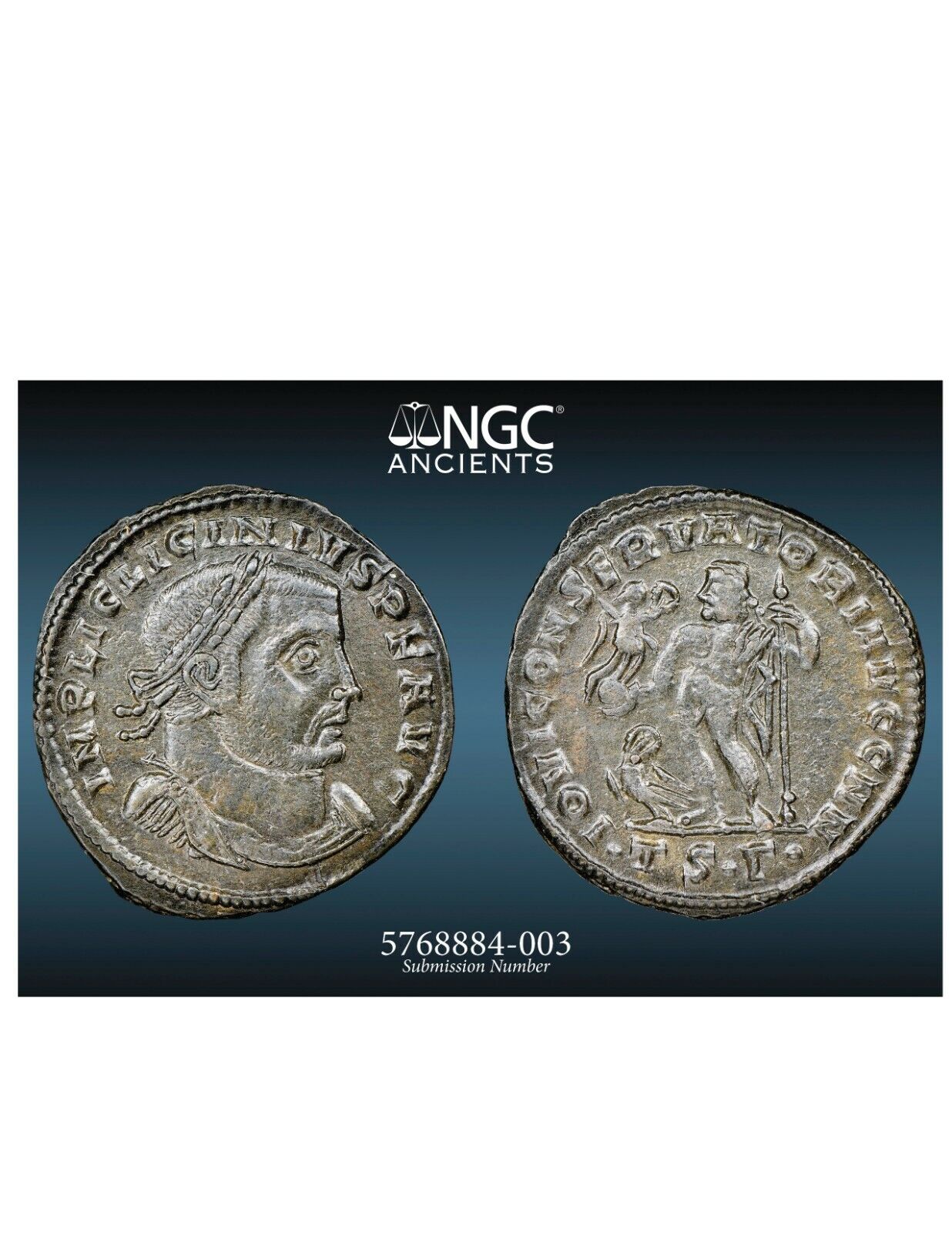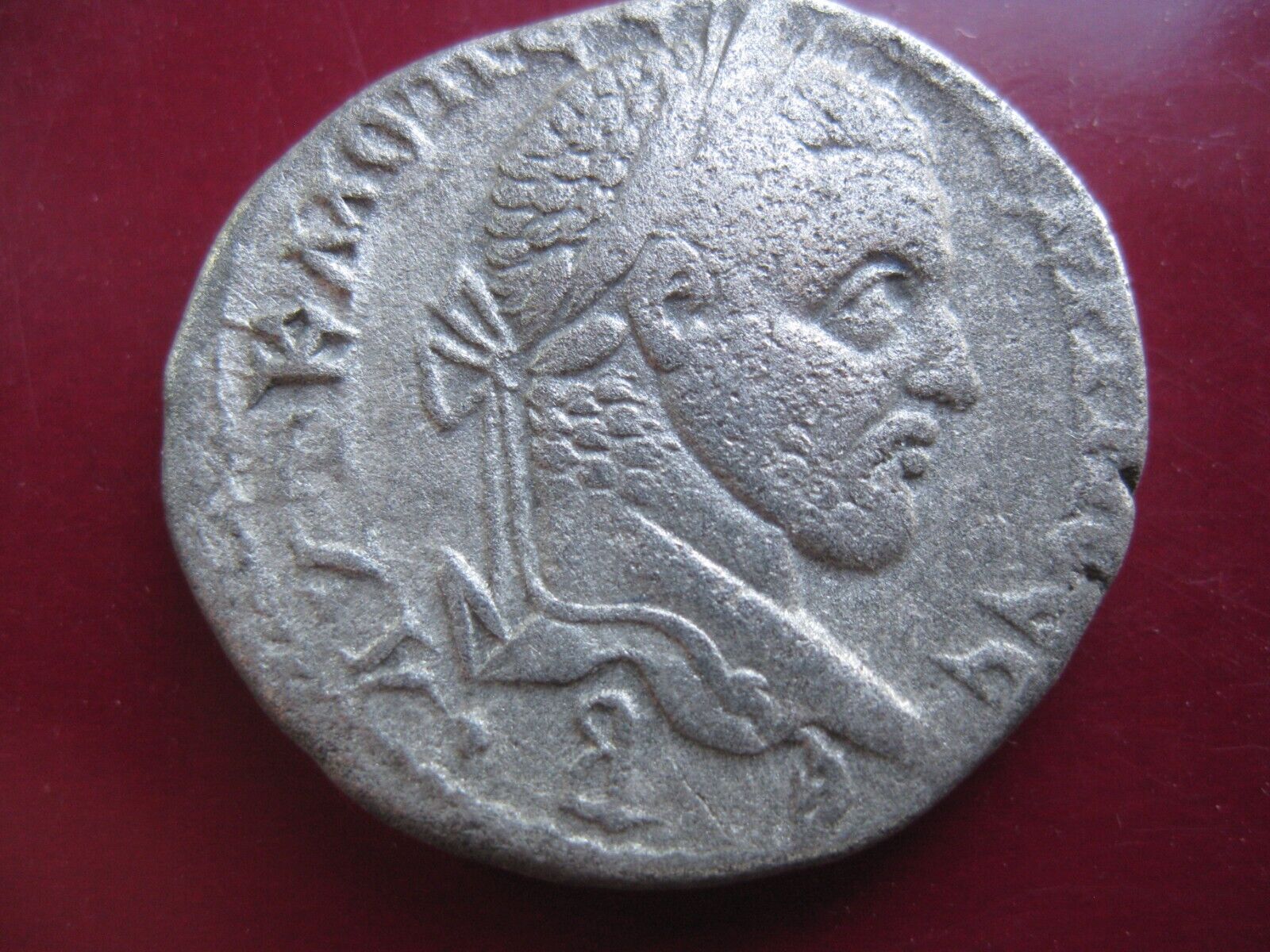-40%
Rare Caracalla AE30 Thrace Philippopolis Naked Athlete
$ 44.88
- Description
- Size Guide
Description
Rare Caracalla AE30 Thrace Philippopolis Naked AthleteRoman Province , Thrace , Philippopolis AE30 mm , 10.5 grams of Caracalla - Roman Emperor: 198-217 A.D. - Obverse : Diademed bust right . Reverse : Athlete naked, advancing left, with right hand extended, and holding palm in left hand. Reference : Moushmov 5314 . ................................................................................... Plovdiv (Bulgarian: Пловдив) is the second-largest city in Bulgaria with a population of 380,683. Plovdiv's history spans some 6,000 years, with traces of a Neolithic settlement dating to roughly 4000 BC. It is the administrative center of Plovdiv Province in southern Bulgaria and three municipalities (Plovdiv, Maritsa and Rodopi) and Bulgaria's Yuzhen tsentralen planning region (NUTS II), as well as the largest and most important city in Northern Thrace and the wider international historical region of Thrace. The city is an important economic, transport, cultural and educational center. Known in the West for most of its history by the Greek name Philippopolis, it was originally a Thracian settlement before becoming a major Roman city. In the Middle Ages, it retained its strategic regional importance, changing hands between the Byzantine and Bulgarian Empires. It came under Ottoman rule in the 14th century. In 1878, Plovdiv was made the capital of the autonomous Ottoman region of Eastern Rumelia; in 1885, it became part of Bulgaria with the unification of that region and the Principality of Bulgaria. Plovdiv is situated in the southern part of the Plovdiv Plain on the two banks of the Maritsa River. The city has historically developed on seven syenite hills, some of which are 250 m high. Because of these seven hills, Plovdiv is often referred to in Bulgaria as "The City of the Seven Hills". There are many remains preserved from Antiquity such as the Ancient amphitheatre, Roman odeon, Roman Stadium, the archaeological complex Eirene and others. Plovdiv was given various names throughout its long history. It was originally a Thracian settlement by the name of Eumolpias. Philip II of Macedon conquered the area in 342-341 BC and renamed the city Philippoupolis (Greek: Φιλιππούπολις), of which the later Thracian name for the city, Pulpu-deva, is a reconstructed translation. After the Romans took control of the area, the city was named Latin: Trimontium, meaning the Three Hills. During the Middle Ages the city was known as Philippoupolis in Byzantine Greek and Paldin (Пълдин) or Plavdiv (Плъвдив) in Old Bulgarian, variations of the town's earlier Thracian name. The city was known as Philippopolis in Western Europe well into the early 20th century. The city was known as Filibe in Turkish during the Ottoman Empire. Plovdiv has settlement traces dating from the Neolithic, roughly 4000 BC. Archaeologists have discovered fine pottery and other objects of everyday life from as early as the Neolithic Age, showing that in the end of the 4th millennium B.C. there already was an established settlement there. According to Ammianus Marcellinus, Plovdiv's written post-Bronze Age history lists it as a Thracian fortified settlement named Eumolpias. In 4th century BC the city was a centre of a trade fair (called panegyreis). In 342 BC, it was conquered by Philip II of Macedon, the father of Alexander the Great, who renamed it "Φιλιππόπολις", Philippopolis or "the city of Philip" in his own honour. Later, it was reconquered by the Thracians who called it Pulpudeva (a reconstructed translation of Philipopolis) In 72 AD it was seized by the Roman general Terentius Varo Lukulus and was incorporated into the Roman Empire, where it was called Trimontium (City of Three Hills) and served as metropolis (capital) of the province of Thrace. It gained a city status in late 1st century. Trimontium was an important crossroad for the Roman Empire and was called "The largest and most beautiful of all cities" by Lucian. Although it was not the capital of the Province of Thrace, the city was the largest and most important centre in the province. In those times, the Via Militaris (or Via Diagonalis), the most important military road in the Balkans, passed through the city.
Authenticity:
Authenticity is unconditionally guaranteed.
Payment:
PayPal
Sales Taxes:
State Tax 7% for all orders shipped within the State of
Florida
.
Domestic shipping:
We ship USPS only, .50 insured shipping with delivery conformation within the
United States
. Add .50 per each additional coin .
International sipping
(INCLUDING
CANADA
): We ship USPS only, .00 First Class International , .90 Priority Mail International ( Required Custom Declaration Form 2976 with full $ amount ); .00 Express Mail International .
Created by eBay Blackthorne ver. 3.2.151.0

